 First off, there are a few inaccuracies that bare repeating for anyone just joining these posts. Yes, we all know that Henry looked more like the Pillsbury Doughboy than Jonathan Rhys Meyers. And yes, the producers have chosen to Frankenstein some characters. In the Tudors, Suffolk puts down the Yorkshire Rebellion instead of Norfolk. Robert Constable got his name changed to John Constable. (A John Constable did exist, but he refused to join the rebellion and would be turning over in his grave if he knew he got cast as one of the ringleaders.) Lastly, (and this is really nitpicking) Reginald Pole meets with Cardinal von Wahlberg when he really should be meeting with his buddy the Bishop of Verona. But despite the occasional mucking with history, the writers certainly worked hard to keep the real history in the drama that unfolds....
First off, there are a few inaccuracies that bare repeating for anyone just joining these posts. Yes, we all know that Henry looked more like the Pillsbury Doughboy than Jonathan Rhys Meyers. And yes, the producers have chosen to Frankenstein some characters. In the Tudors, Suffolk puts down the Yorkshire Rebellion instead of Norfolk. Robert Constable got his name changed to John Constable. (A John Constable did exist, but he refused to join the rebellion and would be turning over in his grave if he knew he got cast as one of the ringleaders.) Lastly, (and this is really nitpicking) Reginald Pole meets with Cardinal von Wahlberg when he really should be meeting with his buddy the Bishop of Verona. But despite the occasional mucking with history, the writers certainly worked hard to keep the real history in the drama that unfolds....WARNING: THE FOLLOWING CONTAINS SPOILERS FOR EPISODE 2 OF SEASON 3.
The Tudors opens with Cromwell looking frazzled at the recent news of the uprisings. The Lincolnshire rebellion has been squelched, but the far more organized Yorkshire rebellion is proving to be a more difficult matter.
The rebels had employed an ingenious manner to recruit members of nobility to their cause. Basically, any noble that refused to join the cause would have all their goodies taken from them and their castle reduced to a pile of rubble.
 The Tudors glosses over Darcy's predicament, but as victim in this tale, his story deserves a little more explaining. Darcy was adamant about not joining the Pilgrimage of Grace which is why he wrote a letter to Henry explaining that he needed more soldiers to defend his castle and withstand the rebels. But Darcy would have probably had more luck writing to Santa Claus because Henry didn't have an army to send to him. Most of the royal army was composed of tenants from local Lords who were a little tied up at the moment fighting for the other side. Predictably, Henry ignored Darcy’s request for arms.
The Tudors glosses over Darcy's predicament, but as victim in this tale, his story deserves a little more explaining. Darcy was adamant about not joining the Pilgrimage of Grace which is why he wrote a letter to Henry explaining that he needed more soldiers to defend his castle and withstand the rebels. But Darcy would have probably had more luck writing to Santa Claus because Henry didn't have an army to send to him. Most of the royal army was composed of tenants from local Lords who were a little tied up at the moment fighting for the other side. Predictably, Henry ignored Darcy’s request for arms. Flash to the bedroom scene... Besides the lack of an army, Henry has other problems. He is still recuperating from his leg wound and showing off his washboard abs for the pleasure of our distaff viewers. Sound titillating? Well, it would have been except Henry’s doctors are also picking pieces of bone out of his puss filled leg. (You might not want to watch this scene during dinner). We still do not know today the cause of Henry’s ongoing leg problems, but the wound may have been caused by an infection of the bone (Osteomyelitis) and his doctors did find splinters of bone.
Flash to the bedroom scene... Besides the lack of an army, Henry has other problems. He is still recuperating from his leg wound and showing off his washboard abs for the pleasure of our distaff viewers. Sound titillating? Well, it would have been except Henry’s doctors are also picking pieces of bone out of his puss filled leg. (You might not want to watch this scene during dinner). We still do not know today the cause of Henry’s ongoing leg problems, but the wound may have been caused by an infection of the bone (Osteomyelitis) and his doctors did find splinters of bone. Henry’s doctors then give him some herbs to heal his wound, but Henry sends for another kind of poultice…. a little of Lady Missledon. She pours on a concoction of sex appeal, crushed pearls and various herbs. The usual hi jinks follows. (Yes, Henry really did use crushed pearls as medicine.) This affair is of course creative license because we do not have proof that Henry was unfaithful to Jane. He did make one comment to Chapuys about missing a few beautiful ladies at court before deciding to get married, but otherwise Henry was as prudish as ever.
Henry’s doctors then give him some herbs to heal his wound, but Henry sends for another kind of poultice…. a little of Lady Missledon. She pours on a concoction of sex appeal, crushed pearls and various herbs. The usual hi jinks follows. (Yes, Henry really did use crushed pearls as medicine.) This affair is of course creative license because we do not have proof that Henry was unfaithful to Jane. He did make one comment to Chapuys about missing a few beautiful ladies at court before deciding to get married, but otherwise Henry was as prudish as ever.Either way, Lady Mistledon’s tender care must have worked. Henry is soon up and about celebrating with Jane and promises to make a trip to the Shrine of Thomas Beckett to give thanks for his improved health. This is the same shrine that he later tears down and scatters the bones to the winds. So much for gratitude.
 A radiant Mary is then invited back to court to the delight of papa Henry who proudly proclaims her his “jewel” and tells everyone that he sure is glad she still has her head. Wheeeeew wouldn’t that have made for an awkward moment in history? His exact words are the same used in the Tudors; ‘Some of you were desirous that I should put this jewel to death.’ (1). All of this excitement proves too much for the fragile Mary who swoons before the court. (Yes, she really did faint.)
A radiant Mary is then invited back to court to the delight of papa Henry who proudly proclaims her his “jewel” and tells everyone that he sure is glad she still has her head. Wheeeeew wouldn’t that have made for an awkward moment in history? His exact words are the same used in the Tudors; ‘Some of you were desirous that I should put this jewel to death.’ (1). All of this excitement proves too much for the fragile Mary who swoons before the court. (Yes, she really did faint.)Henry then wonders if his court's licentiousness has tarnished his precious jewel. The only way to find out is to put Mary’s innocence to a test. At Henry’s command, Sir Francis approaches Mary and asks her if she wants to play “cunnilingus.” Mary agrees, but asks how to play. The scene did really happen with some slight creative license. In reality, Henry tested Mary’s sexual naivete by incorporating some naughty words into a court masque. Mary did not understand the words, but the rest of the court was certainly amused.
On a side note, Mary really was totally innocent to court flirtations. One of her ladies in waiting, Jane Dormer commented that Mary, ‘knew no foul or unclean speeches, which, when her lord father understood, he would not believe it.’ (2) Mary’s innocence continued well into her late 30’s when Dormer tells another funny story involving the notorious flirt, Lord William Howard. One day, Howard tickled the chin of another of Mary’s ladies in waiting, Frances Neville and teasingly said, ‘my pretty whore, how douse thou?’ Mary overheard the conversation and took notes. Later, when Francis was helping Mary dress her lady reused her newly learned vocabulary on Frances saying, ‘God-a-mercy, my pretty whore!” Frances aghast begged Mary not to use that word again explaining it was not a loving term of endearment.
 Meanwhile…. A hornet's nest of rebels come knocking on Lord Darcy’s door and he meets with the leader of the rebels, Robert Aske. Aske gives Darcy his usual speech– Their aims are peaceful. They just want Henry to start listening to their grievances and stop listening to Cromwell’s counsel. bla bla bla. (All very true) It doesn’t really matter what Aske says for Darcy is really caught in a rock and a monarchist hard spot. If he doesn’t join the cause, then he loses his home and endangers the safety of his family. If he joins, then he is a traitor. Worst of all, Darcy doesn’t have a single cannon that will fire to protect his castle. (His garrison numbered only 260 men, but it shrunk to half of that by the time of Aske’s visit).
Meanwhile…. A hornet's nest of rebels come knocking on Lord Darcy’s door and he meets with the leader of the rebels, Robert Aske. Aske gives Darcy his usual speech– Their aims are peaceful. They just want Henry to start listening to their grievances and stop listening to Cromwell’s counsel. bla bla bla. (All very true) It doesn’t really matter what Aske says for Darcy is really caught in a rock and a monarchist hard spot. If he doesn’t join the cause, then he loses his home and endangers the safety of his family. If he joins, then he is a traitor. Worst of all, Darcy doesn’t have a single cannon that will fire to protect his castle. (His garrison numbered only 260 men, but it shrunk to half of that by the time of Aske’s visit).What the Tudors failed to mention is that the poor guy was also living on a greatly reduced income and suffering from a bad base of chronic bowel disorder. Really…. it is too much for our victim Darcy. Old Tom (as he was called by his buddies) just wants to live his last days out in peace with an occasional hearty bowel movement. What was he to do?
Back in London, Henry is roughing Cromwell up with a royal smack down. (He did hit him on practically a daily basis.) Henry commands Cromwell to write a letter to Darcy saying he better hold Pontefract castle or else. (The letter actually came from Henry and was more along the lines of what kind of sissy boy can’t defend his own castle) Henry vainly threatens to make a trip to the North himself to settle matters. This sort of remind me of when my sister and I were really noisy and my Dad would scream up, "don't make me come up there!" Much like my Dad, Henry's threat was an empty one. He didn't visit the north until his royal progress in 1541.
 Meanwhile….Reginald Pole meets with Cardinal von Wahlberg. The Cardinal tells Pole that the Holy Father has asked him to write a pamphlet denouncing the king and plans to elevate Pole to the title of Cardinal. Pole agrees to the assignment, but humbly refuses the Cardinal position.
Meanwhile….Reginald Pole meets with Cardinal von Wahlberg. The Cardinal tells Pole that the Holy Father has asked him to write a pamphlet denouncing the king and plans to elevate Pole to the title of Cardinal. Pole agrees to the assignment, but humbly refuses the Cardinal position.In reality, Henry asked Pole to write down his thoughts on his supposed unlawful marriage to Catherine of Aragon. With reluctance Pole agreed and came back with an unexpected diatribe titled Pro ecclesiasticae unitatis defensione in which he referred to Henry as a “dirty barrel.” Not exactly what Bluff King Hal had in mind, but we can hardly blame Pole for his impertinence. Henry had recently executed his buddies More and Fisher so Pole was in no mood to play nice. In response, Henry sent Pole a summons to appear before him and explain exactly what he meant by “dirty barrel.” But Pole wasn’t that stupid. He declined the invitation and instead headed straight for the Vatican to hide behind Pope Paul III’s skirts while Henry raged in England.
 Pole did turn down the fancy red Cardinal’s hat…. at first. He also turned down Cardinal Wosley’s old position of Archbishop of York when Henry offered it to him. Is Pole really that humble or is he simply biding his time? We will have to wait and see.
Pole did turn down the fancy red Cardinal’s hat…. at first. He also turned down Cardinal Wosley’s old position of Archbishop of York when Henry offered it to him. Is Pole really that humble or is he simply biding his time? We will have to wait and see.Pole then meets with the Spanish Ambassador, Mendoza to encourage the uprising in the North along with plans of putting the Lady Mary on the throne. He even goes so far at to suggest that he could easily step into the king’s shoes.
In truth, we do not know what Pole’s intentions were. On one hand, he showed his humility by turning down lucrative positions. On the other hand, he had set up a base in Flanders, upon the orders of the Pope, with the obvious intention of leading a foreign invasion. Overall, Pole was probably the greatest threat to Henry's reign, not only because he had a better claim to the throne and the ability to stir public opinion in his direction, but because he had the means to establish a foreign invading army. In Henry’s mind, Pole and all his kin had to be exterminated like cockroaches.
Back in the north, Aske gives his demands to Suffolk (Norfolk) that includes a new Parliament to be summoned and the restoration of the abbeys, but not a mention of Cromwell. Later, when the rebels meet with Suffolk again they list Cromwell as their last request. We must remember that the pilgrims had no desire to displace their king, but they did want to change the tide of corrupt rule under Cromwell. Cromwell’s dismissal was really the number one sticking point to settle their grievances. It was not an afterthought.
Meanwhile, Henry has promised a pardon to all leaders in the insurrection and a future meeting with Parliament to hear their grievances. In reality, Henry had a list of 10 people that were not included in this pardon. Aske and Constable were on the "no pardon list," but conveniently for Henry, neither knew it.
You would think that since Aske was a lawyer that he would have got all of Henry's promises in writing but....noooooooo. He actually trusted the king's "word." Sir Constable (who was not a lawyer) basically says he trusts the king about as far as he can throw him (which isn't far because Henry is pretty pudgy by this point.) Constable bases his mistrust on a letter he secretly receives. This letter is pure Hollywood, but it is true that Robert Constable was against a truce while Aske believed in sugar plum fairy tales and a king who kept his word. Silly Aske.
 Next, there is a scene between Henry and Suffolk that is not entirely fair to Henry. In this scene, Suffolk asks Henry what he should tells the rebels and Henry basically says, “oh I trust you. Just make something up. “ It is true that Henry tended to trust the day to day drudgery of his administration to his trusted advisers and Norfolk was left to pick up the pieces in the north. But Henry was always actively involved in more weighty matters of policy. For example, Henry would often open letters addressed to Cromwell and Cromwell himself often instructed others when writing to him to also send a copy to the king. Henry was pretty much like any typical CEO today. He didn’t want to be bothered when it came time to order more staples, but he certainly would not be out to lunch if the company were going under. (Ok maybe that is bad example. Some CEO’s probably would be out to lunch) But you get the point. Henry would never have sat back and told Suffolk to handle things on his own during the greatest threat to his throne. I am guessing that the producers are trying to build up the tension and stress upon Suffolk because it is statistically proven fact that every time Henry Cavil sweats it raises ratings.
Next, there is a scene between Henry and Suffolk that is not entirely fair to Henry. In this scene, Suffolk asks Henry what he should tells the rebels and Henry basically says, “oh I trust you. Just make something up. “ It is true that Henry tended to trust the day to day drudgery of his administration to his trusted advisers and Norfolk was left to pick up the pieces in the north. But Henry was always actively involved in more weighty matters of policy. For example, Henry would often open letters addressed to Cromwell and Cromwell himself often instructed others when writing to him to also send a copy to the king. Henry was pretty much like any typical CEO today. He didn’t want to be bothered when it came time to order more staples, but he certainly would not be out to lunch if the company were going under. (Ok maybe that is bad example. Some CEO’s probably would be out to lunch) But you get the point. Henry would never have sat back and told Suffolk to handle things on his own during the greatest threat to his throne. I am guessing that the producers are trying to build up the tension and stress upon Suffolk because it is statistically proven fact that every time Henry Cavil sweats it raises ratings. Meanwhile, Aske gets invited to dinner at Henry's place. Will Aske really be so foolish as to think Hank is going to give him a big hug and kiss and say no hard feeling about almost bringing down my kingdom like a house of cards? Well, someone has to play the fool in this drama. Find out in the next episode….
Meanwhile, Aske gets invited to dinner at Henry's place. Will Aske really be so foolish as to think Hank is going to give him a big hug and kiss and say no hard feeling about almost bringing down my kingdom like a house of cards? Well, someone has to play the fool in this drama. Find out in the next episode….Notes:
(1) Weir p. 360
(2) Weir p. 5
Sources and Further Reading:
Moorhouse, Geoffrey, The Pilgrimage of Grace: The Rebellion that shook Henry VIII's Throne, Troy, Michigan: Phoenix, 2003.
Hoyle, R.W. The Pilgrimage of Grace and the Politics of the 1530s. New York, NY: Oxford University Press, USA, 2003.
Starkey, David. The Six Wives of Henry VIII. New York, NY: Harper Perennial, 2004
Fraser, Antoinia. The Six wives of Henry VIII, New York, NY: Vintage, 1993
Weir, Alison. The Six Wives of Henry VIII. New York, NY: Grover Press, 1991

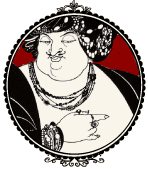

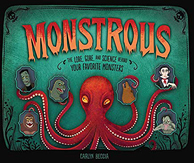
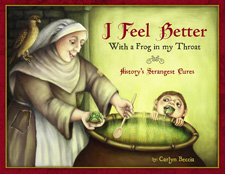
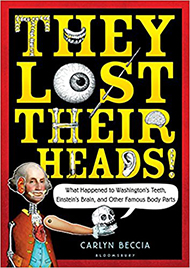


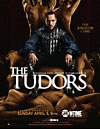

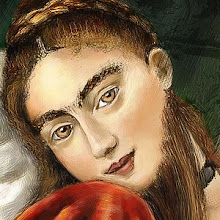

9 comments:
Excellent summary! As I have watched the show and read various books, it amazes me how many times they have seemingly used the actual words someone said. Or else they have been reading the same books I have...
Thanks for that summary! I love reading about the differences and similarities in history- I definately see the appeal in a non-obese Henry, also. The part about Mary is particularly funny, also.
Poor Mary! I can't believe his father would've killed her if she didn't sign that thing!
Also, was Henry's wound was completely cured then?
Henry's wound never healed and just got worse as he gained more weight. His leg wound probably was a huge factor in many of his decisions and his overall disposition so it was really important to include it in the storyline.
I feel Henry's pain. I just went through a course of steroids for inflamed rib cartilage. Pain makes one cranky. He actually was on to something with herbs and endorphin inducing sex. lol How old is Henry by now?
Carmen
oh so sorry you are going through a rough period. Yes, pain can make anyone VERY grumpy and a bit depressed.
Henry is 45 at this time.
I love this comparison of fact to fiction. I would like to point out that it's a throne you sit on unless you are thrown off.
I look forward to visiting this site again!
"thrown"???
sheesh...alright already. I fixed the typo. But I can't promise it won't happen again. That's what editors are for. :)
Post a Comment